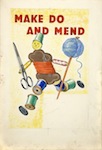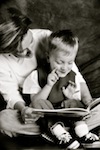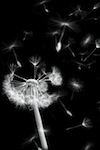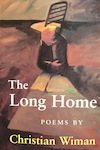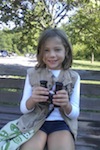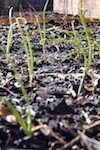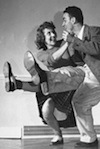 Then one day, it happens: rising out of bed in the new day blessing, rubbing the crusted corners of my eyes, drawing back the curtains, I behold through a breach in seasonal tyranny the previously cloaked indigo canvas. Its light is shocking. Reveling in the vaulted firmament, I swear I will never again curse the heavens or the sun in their — in my! — desertion. I remember to smile.
Then one day, it happens: rising out of bed in the new day blessing, rubbing the crusted corners of my eyes, drawing back the curtains, I behold through a breach in seasonal tyranny the previously cloaked indigo canvas. Its light is shocking. Reveling in the vaulted firmament, I swear I will never again curse the heavens or the sun in their — in my! — desertion. I remember to smile. Then one day, it happens: rising out of bed in the new day blessing, rubbing the crusted corners of my eyes, drawing back the curtains, I behold through a breach in seasonal tyranny the previously cloaked indigo canvas. Its light is shocking. Reveling in the vaulted firmament, I swear I will never again curse the heavens or the sun in their — in my! — desertion. I remember to smile.
Then one day, it happens: rising out of bed in the new day blessing, rubbing the crusted corners of my eyes, drawing back the curtains, I behold through a breach in seasonal tyranny the previously cloaked indigo canvas. Its light is shocking. Reveling in the vaulted firmament, I swear I will never again curse the heavens or the sun in their — in my! — desertion. I remember to smile.
















